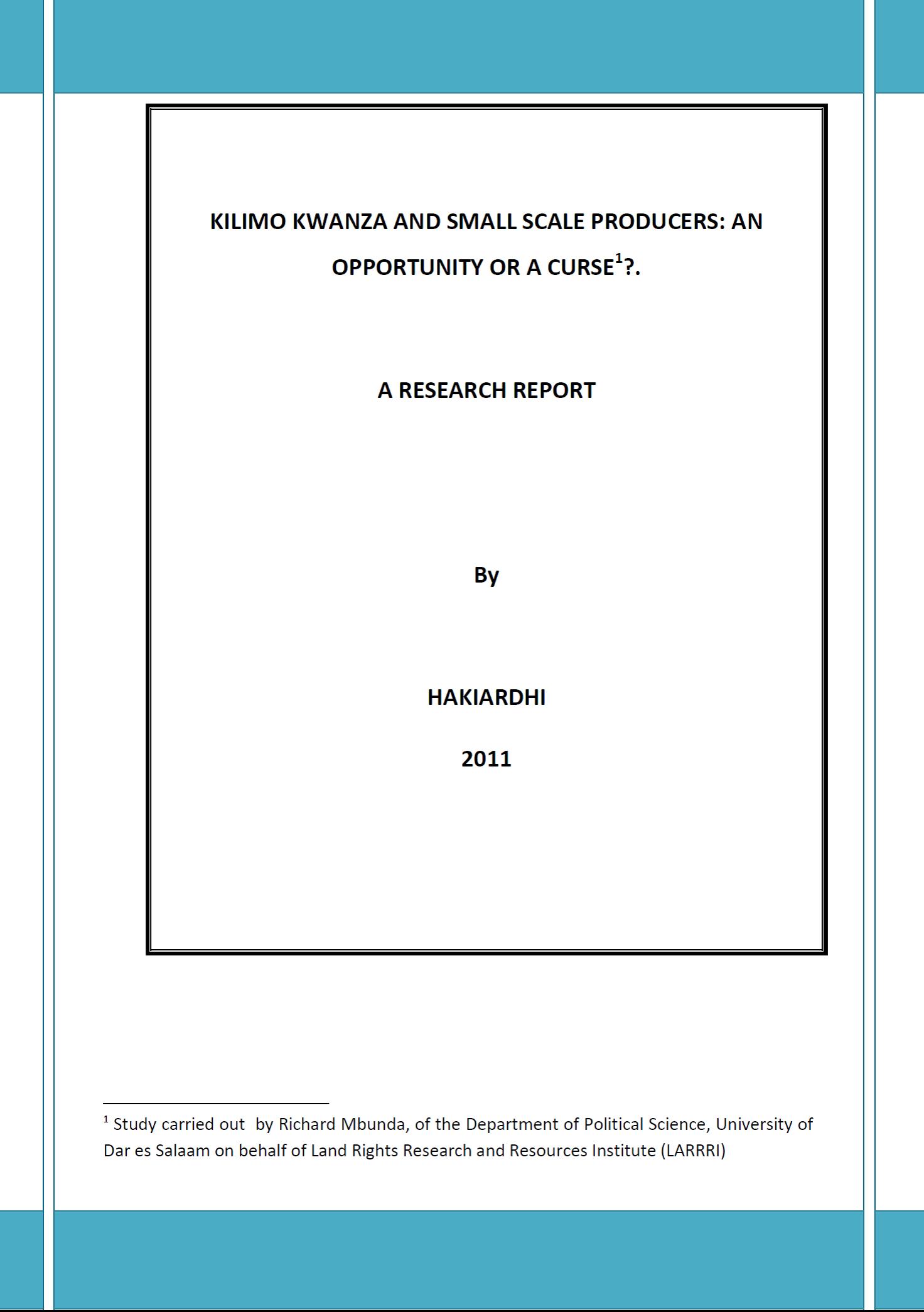Resource information
This study sought to follow up the implementation of the Kilimo Kwanza initiative with the view to establish reliable facts on its significance to small-scale producers, mainly peasants and pastoralists. To achieve this, the study began by examining the perception of small-scale producers about Kilimo Kwanza and it assessed their participation in the implementation process. Moreover, the study scrutinized the proposed amendment of the Village Land Act and its implication to small-scale produces if carried out. Finally the study aimed at recommending a workable modal that will enhance an effective participation of small-scale producers in the implementation of the Kilimo Kwanza initiative.
The study found out that small-scale producers were not ‘consulted’ during the preparation of the Kilimo Kwanza initiative. The formulation of the initiative was spearheaded by the business organizations, who represent interests of middle and large-scale commercial farmers. It was also observed that majority of the small-scale producers are unaware of the kernel of Kilimo Kwanza and their role in the implementation of the initiative. Worse still, the initiative presents to them a dreadful feeling of losing their land to land grabbers as well as being displaced from their land.
The study recommends that a permanent commission should be created in order to manage the activities of the Kilimo Kwanza project, including carrying out studies in order to determine the needs of small scale producers, their role in the implementation of Kilimo Kwanza, as well as issues of terrain, nature of the soil and suitable crops to be produced in all areas that supports agricultural production. The commission should also document issues of land availability and land disputes in order to propose appropriate measures for intervention


